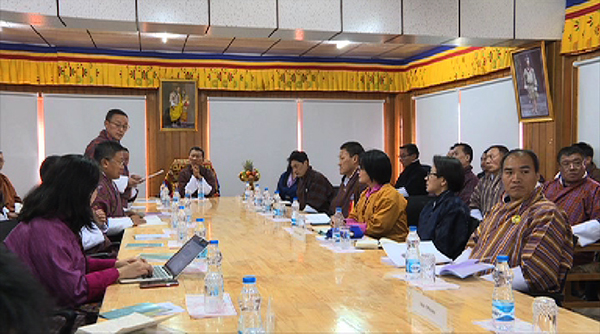 The Goods and Services Tax (GST) Bill 2020 proposed to exempt tax on goods and services in the agriculture, education and health sectors. The finance ministry shared this at a consultation meeting with the business entities in Thimphu yesterday before presenting the GST Bill 2020 for its third reading in the Parliament on 4th of February. The Finance Minister introduced the bill in the National Assembly on Thursday.
The Goods and Services Tax (GST) Bill 2020 proposed to exempt tax on goods and services in the agriculture, education and health sectors. The finance ministry shared this at a consultation meeting with the business entities in Thimphu yesterday before presenting the GST Bill 2020 for its third reading in the Parliament on 4th of February. The Finance Minister introduced the bill in the National Assembly on Thursday.
The government proposed to introduce a flat seven per cent Goods and Services Tax on all goods and services imported into the country except for the exempted list and zero-rated commodities. This is to broaden the tax base for fiscal sustainability.
The exempted list includes goods and services in the agriculture, education and health sectors. The GST will not be levied on farm machinery, seeds, fertilizers, rice, salt and oil, textbooks and medical goods. These are considered as essential imported commodities that the country cannot produce.
To promote digitization, GST will also be exempted on imported electronic gadgets such as mobile phones, IT equipment and laptops. Sporting gears are also listed among the exempted list to promote a healthy lifestyle.
If GST Bill 2020 is implemented, all exports will be zero-rated. This is to reduce import and promote export.
The Bill 2020 also proposes to impose excise equalization tax in addition to GST on three categories of imported goods- demerit goods such as junk foods and alcoholic beverages, luxury goods and the goods that are harmful to the environment such as plastic goods. However, excise equalization tax will not be levied on the export of the same commodities.
GST is a major tax reform that will be replacing the existing Bhutan Sales Tax which has 11 different tax brackets.
Phub Gyem









